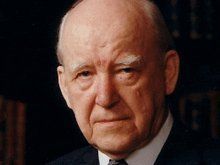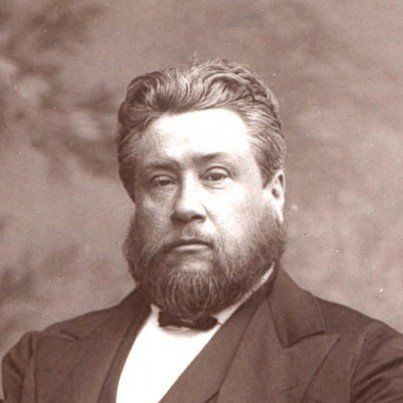Q. Evangelical Times is both pleased and grateful to have this opportunity of interviewing you, Mr Eveson the principal of London Theological Seminary (LTS). Thank you for your time. I wonder if we could begin by asking you for a very brief history of LTS and why it was founded?
A. On 20 October 1997 we held a special conference to commemorate the twentieth anniversary of the seminary. Through the day there were representative pastors and missionaries present from each year of the seminary’s existence. LTS was founded to offer a radically different kind of training to that being offered at the time. There was a general lack of confidence in the theological and Bible colleges of our land; moves were afoot to establish ecumenical colleges while others were suggesting there was no need for a trained ministry. The Sponsoring Committee under the chairmanship of Dr Martyn Lloyd-Jones felt strongly the need of not only an evangelical but a distinctly Protestant college (evangelicals were then, as now, seeking to fraternize with those committed to Roman Catholicism). Given that baseline, the seminary was to be as broad-based as possible. ‘There are among us certain “empire builders” who are always ready to start their own colleges,’ commented the Doctor. The Sponsoring Committee was therefore made up of ministers from the various groupings of Protestant evangelicals in the country, to form a college that would serve the churches.
Q. Where do your students come from, and on what criteria do you accept or reject applicants?
A. We have had students from all five continents and from all parts of the United Kingdom. Students come from the variety of church backgrounds that you find within Protestant evangelicalism. Students are accepted who have a clear call to the preaching/pastoral ministry and have had that call tested by others, preferably their home church. We also accept pastors who feel the need of further training. Some come to us without any paper qualifications, whereas the majority are university graduates and post-graduates. We look for men who are humble, teachable, spiritually-minded, who have the respect of others inside and outside the church, who have a pastor’s heart, a concern for the lost; men of ability who can study and speak.

Q. In what way, if any, does LTS differ from Bible schools and other theological colleges?
A. We are unique in that our only reason for existence is to provide training for those who are called to the preaching/pastoral ministry, whether in the UK or overseas, whether in pioneer or more settled situations. No provision is made for women students or for those who want to serve the Lord in other ways. We do not prepare students for diplomas or degrees and we do not look for academic accreditation from the universities of the land. All the tuition is geared toward preparing men for the Christian ministry and all the teachers are experienced pastors.
Q. Why do preachers need training in a theological seminary like LTS? Do you think that a preacher who has been trained in a local church under the supervision of a competent pastor has been adequately trained for the ministry?
A. I do not know of any competent pastor who would be so bold as to claim competence in all the theological disciplines and then be able to give the time to teach every aspect of a theological course. A wiser and more efficient use of time, energy and expertise would be to pool resources. Iron sharpens iron and the interaction of students and teachers is very profitable and saves a person from the danger of becoming insular and isolationist. It demonstrates the reality of evangelical unity and encourages closer ties among the churches.
Q. Do you think that any specialized training is necessary for those who intend to go abroad as missionaries? If so, what training do you give in this area?
A. LTS is not a college that specializes in training missionaries in general. We do welcome those who are called to preach the gospel in pioneering situations, whether at home or abroad. Some attention is given to missions and world religions. Special requirements such as language-learning and cultural awareness are best acquired in the environment in which the person is to work.

Q. How would you define the theological position of LTS with respect to (a) historical Calvinism; (b) the ecumenical movement; (c) the charismatic movement; and (d) baptism and church government?
A. We would align ourselves with the best examples of historical Calvinism such as the Puritans, Jonathan Edwards, George Whitefield, Daniel Rowlands, William Carey, C. H. Spurgeon and Martyn Lloyd-Jones. LTS, as I mentioned earlier, stands opposed to the ecumenical movement but at the same time it seeks to encourage true evangelical unity among the churches. As for the charismatic movement, it covers such a plethora of ideas and practices. While sympathizing with those who desire to see more evidence of the life and power of the Holy Spirit in our churches we do not believe that this can be engineered or worked up by human effort, however sincere. We deplore the way in which the movement has sometimes sought to infiltrate evangelical churches, causing confusion, division and the undermining of the ministry of the Word. As for baptism and church government our policy statement puts it like this: ‘We are resolved to give pride of place to the gospel without diminishing the importance of those matters on which evangelicals are not in agreement.’ To remove any suspicion of partiality, respected representatives from different church traditions are called on to lecture in those areas where Bible-believing churches disagree.
Q. How do you define ‘the gospel’ to your students?
A. The gospel is the message of the Bible which centres on God’s amazing grace in Jesus Christ seen against the dark background of human sin and its awful consequences. Of first importance is the truth ‘that Christ died for our sins according to the Scriptures, that he was buried, and that he was raised on the third day according to the Scriptures’. The heart of the gospel lies in the perfect life and propitiatory death of the Son of God, our only representative and substitute. We encourage the students to preach the gospel evangelistically, and to urge the people to repent and believe the good news. The gospel also needs to be preached to believers for it is foundational for Christian living and church life.
Q. Is there any particular emphasis which, in your opinion, preachers should have in their ministry to meet the spiritual needs in the world today?

A. A good grasp of the Bible’s message is important together with an understanding of the times in which we live. The gospel must be ‘earthed’ to the situation in which people find themselves. Above all, we need to be endued with power from heaven, that God would revive his work during these sad years. The gospel is the only hope for humanity and yet our land generally does not want to hear it. If there is to be a change, God must act in a powerful way. The cry of every gospel preacher must be ‘O Lord, how long?’
Q. How may churches best encourage those preparing for full-time Christian work?
A. Churches can encourage those preparing for the ministry by praying for them, being sensitive to any material needs and giving opportunities to preach and lead various meetings of the church. It would be helpful to see larger churches with pastors taking newly-trained men under their wing to give them more experience. A three-week placement while they are on their course is no substitute to working as an assistant for a year or so. We have seen more of this recently and it has worked well and been mutually profitable. Don’t criticize a man behind his back and refuse to have him preach again. That will be of no help. Get the elders or leaders of the church to take him on one side and gently point out what was wrong. If he is humble and teachable he will thank you for it and learn by it. Again, the churches need to pray that the Lord would raise up a new generation of preachers full of faith and the Spirit who will grip the ears of the people.
Q. Is there anything else you would like the Christian public to know about LTS?
A. I am often asked, do LTS men get places? Nearly 250 men have been trained at the seminary, the vast majority of whom are in the ministry either here in the UK or abroad. We have had many pastorless churches writing to us for help recently. We cannot keep up with the demand. Pray the Lord of the harvest that he would raise up the men to fill these vacancies.









